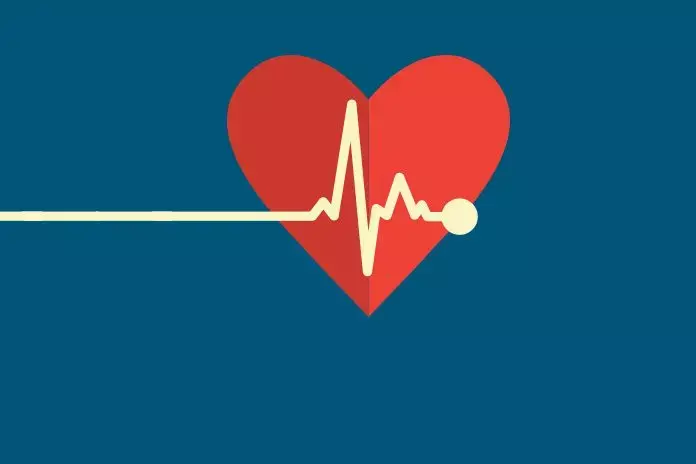- Home
- Medical news & Guidelines
- Anesthesiology
- Cardiology and CTVS
- Critical Care
- Dentistry
- Dermatology
- Diabetes and Endocrinology
- ENT
- Gastroenterology
- Medicine
- Nephrology
- Neurology
- Obstretics-Gynaecology
- Oncology
- Ophthalmology
- Orthopaedics
- Pediatrics-Neonatology
- Psychiatry
- Pulmonology
- Radiology
- Surgery
- Urology
- Laboratory Medicine
- Diet
- Nursing
- Paramedical
- Physiotherapy
- Health news
- Fact Check
- Bone Health Fact Check
- Brain Health Fact Check
- Cancer Related Fact Check
- Child Care Fact Check
- Dental and oral health fact check
- Diabetes and metabolic health fact check
- Diet and Nutrition Fact Check
- Eye and ENT Care Fact Check
- Fitness fact check
- Gut health fact check
- Heart health fact check
- Kidney health fact check
- Medical education fact check
- Men's health fact check
- Respiratory fact check
- Skin and hair care fact check
- Vaccine and Immunization fact check
- Women's health fact check
- AYUSH
- State News
- Andaman and Nicobar Islands
- Andhra Pradesh
- Arunachal Pradesh
- Assam
- Bihar
- Chandigarh
- Chattisgarh
- Dadra and Nagar Haveli
- Daman and Diu
- Delhi
- Goa
- Gujarat
- Haryana
- Himachal Pradesh
- Jammu & Kashmir
- Jharkhand
- Karnataka
- Kerala
- Ladakh
- Lakshadweep
- Madhya Pradesh
- Maharashtra
- Manipur
- Meghalaya
- Mizoram
- Nagaland
- Odisha
- Puducherry
- Punjab
- Rajasthan
- Sikkim
- Tamil Nadu
- Telangana
- Tripura
- Uttar Pradesh
- Uttrakhand
- West Bengal
- Medical Education
- Industry
SGLT2 inhibitors superior to GLP-1 receptor agonists for lowering HF hospitalizations: Study

Patients with diabetes mellitus taking an SGLT2 inhibitor have a lower risk for hospitalization for Heart Failure compared with those taking a GLP-1 receptor agonist, according to a study published in the Annals of Internal Medicine.
Both sodium-glucose cotransporter-2 (SGLT2) inhibitors and glucagon-like peptide-1 receptor agonists (GLP-1 RAs) have shown cardiovascular benefits in placebo-controlled trials of patients with type 2 diabetes (T2D) and established cardiovascular disease (CVD).
A group of researchers from the U.S.A conducted a study to evaluate whether SGLT2 inhibitors and GLP-1 RAs are associated with differential cardiovascular benefits among T2D patients with and without CVD.
Primary outcomes were myocardial infarction (MI) or stroke hospitalization and hospitalization for heart failure (HHF). Pooled hazard ratios (HRs) and rate differences (RDs) per 1000 person-years were estimated, with 95% CIs, controlling for 138 preexposure covariates.
The results of the study are as follows:
· The initiation of SGLT2 inhibitor versus GLP-1 RA therapy was associated with a slightly lower risk for MI or stroke in patients with CVD but the similar risk in those without CVD.
· The initiation of SGLT2 inhibitor versus GLP-1 RA therapy was associated with reductions in HHF risk regardless of baseline CVD in patients with CVD and in those without CVD
Thus, the researchers concluded that the use of SGLT2 inhibitors versus GLP-1 RAs was associated with consistent reductions in HHF risk among T2D patients with and without CVD, although the absolute benefit was greater in patients with CVD. There were no large differences in risk for MI or stroke among T2D patients with and without CVD.
Reference:
A study titled, "Sodium-Glucose Cotransporter-2 Inhibitors Versus Glucagon-like Peptide-1 Receptor Agonists and the Risk for Cardiovascular Outcomes in Routine Care Patients with Diabetes Across Categories of Cardiovascular Disease" by Patorno E et. al published in the Annals of Internal Medicine.
https://doi.org/10.7326/M21-0893
Dr. Shravani Dali has completed her BDS from Pravara institute of medical sciences, loni. Following which she extensively worked in the healthcare sector for 2+ years. She has been actively involved in writing blogs in field of health and wellness. Currently she is pursuing her Masters of public health-health administration from Tata institute of social sciences. She can be contacted at editorial@medicaldialogues.in.
Dr Kamal Kant Kohli-MBBS, DTCD- a chest specialist with more than 30 years of practice and a flair for writing clinical articles, Dr Kamal Kant Kohli joined Medical Dialogues as a Chief Editor of Medical News. Besides writing articles, as an editor, he proofreads and verifies all the medical content published on Medical Dialogues including those coming from journals, studies,medical conferences,guidelines etc. Email: drkohli@medicaldialogues.in. Contact no. 011-43720751


